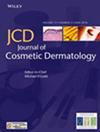Impact of Vitamin D Injection on Keloids and Hypertrophic Scars
Abstract
Background
Hypertrophic scars and keloids are human cutaneous fibroproliferative conditions that develop after burns, trauma, surgery, and inflammation. Vitamin D inhibits keloid fibroblast proliferation by reducing TGF-β-induced extracellular matrix formation, boosting matrix metalloproteinase activity, and reducing inflammation.
Aim
To study the effect of intralesional and systemic Vitamin D3 injection on hypertrophic scars and keloids and whether vitamin D3 deficiency increases scarring.
Patients and Methods
This study included 30 hypertrophic scars and keloid patients divided into groups depending on serum vitamin D levels. Every patient was tested for vitamin D using ELISA. Group I: patients with vitamin D deficiency or insufficiency received a systemic injection of vitamin D (cholecalciferol 200 000 I.U.) once monthly for 3 months with a calcium oral supplement and intralesional vitamin D injections on hypertrophic scars and keloids. Group II: patients with sufficient vitamin D received only intralesional vitamin D injections.
Results
Vitamin D deficiency did not affect scar formation or severity (total Vancouver scar scale before assessment) with a p value > 0.05. All instances showed a substantial drop in vascularity, pliability, and total Vancouver scale score (p value < 0.05) following intervention, but no change in scar pigmentation or height. Scar assessment following intervention did not significantly differ between research groups (p > 0.05).
Conclusion
Injection of vitamin on hypertrophic scars and keloids enhances vascularity and pliability in patients with sufficient serum vitamin D levels and those with deficient or insufficient serum vitamin D levels after improving them by systemic injection of vitamin D without any effect on height and pigmentation of scars.
Trial Registration
NCT06301178


 求助内容:
求助内容: 应助结果提醒方式:
应助结果提醒方式:


